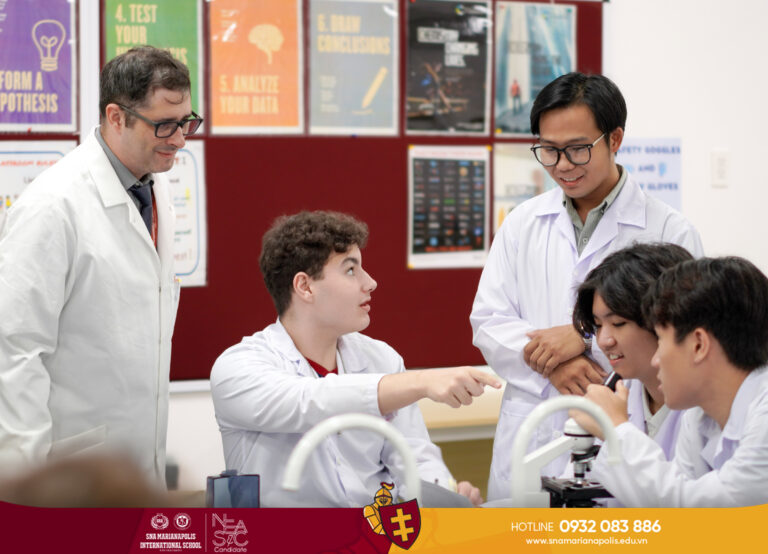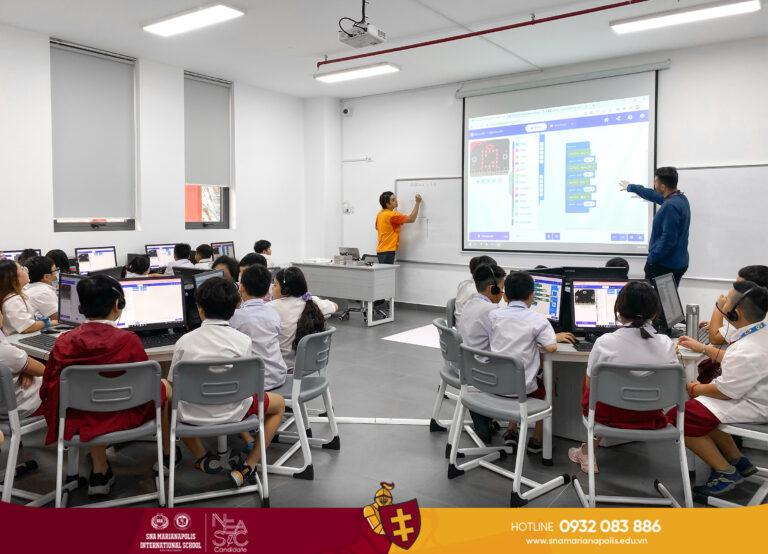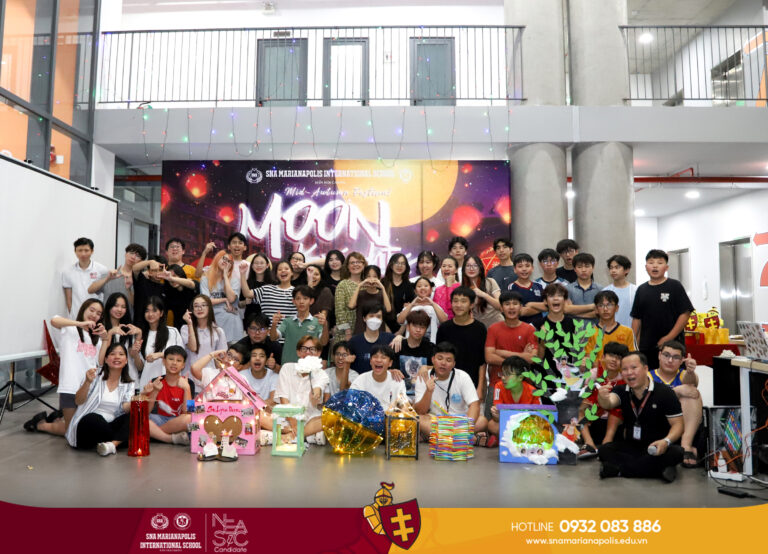Vietnam is the 6th country that Mr. Emil Waldhauser has come to teach in after living and working in the Czech Republic, the United Arab Emirates, South Korea, Bangladesh, and China in the past 20 years. Mr. Emil has had experience as an Elementary Homeroom and English teacher and Secondary English and Technology teacher. His versatility is also shown in the wide range of curricula he has taught, from the British, Australian, and IB, to the American curriculum at SNA Marianapolis where he currently is a grade 3 Homeroom teacher. With his professional background and interest in technology, Mr. Emil also leads the Basic Coding club for students in grades 3 to 5.
One can often catch Mr. Emil leading his students in one line heading towards the cafeteria or their clubs. That’s also the most lasting impression of his class – discipline and awareness.
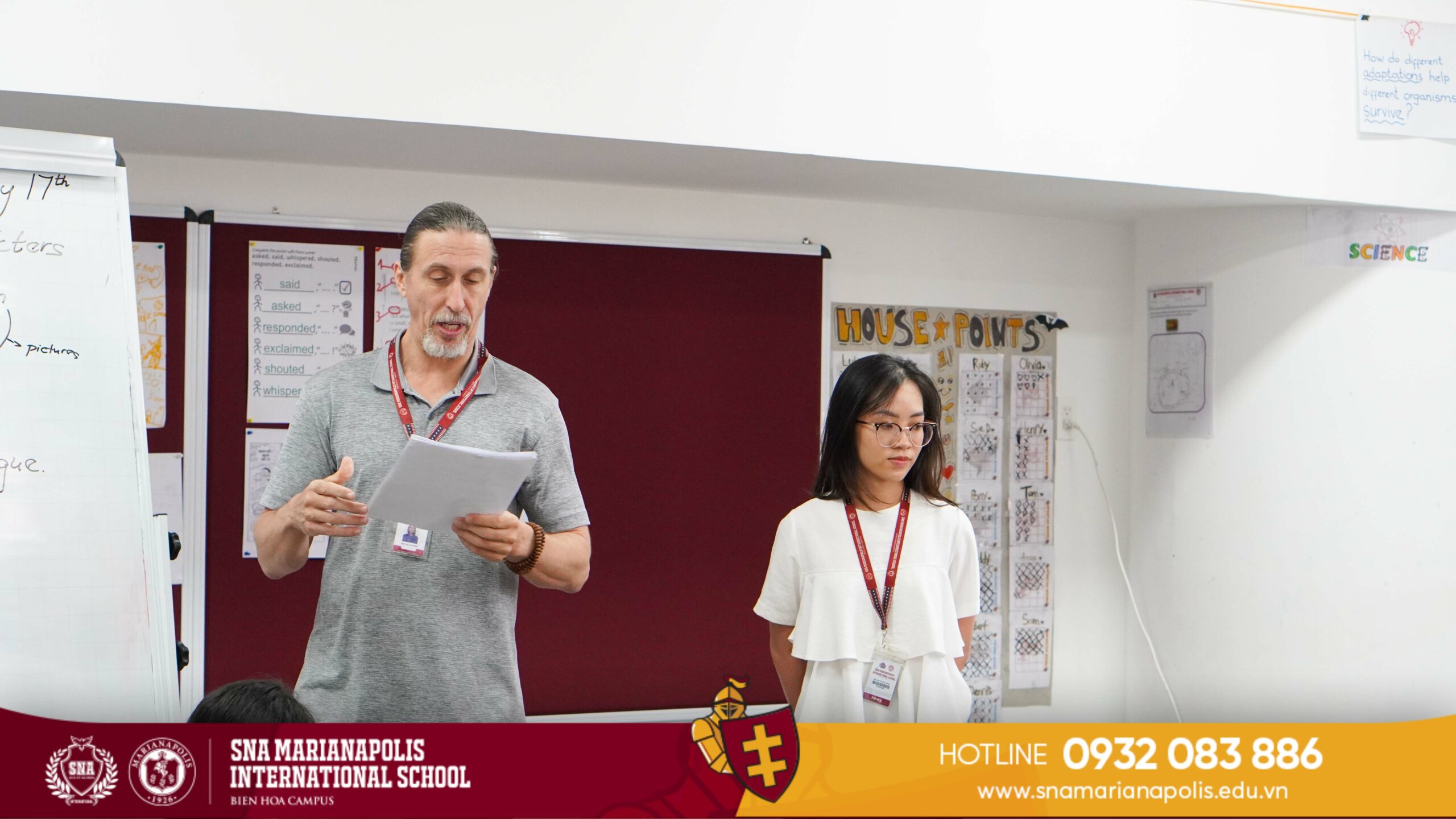
Routines as a Classroom Management Strategy
When asked what his secret to classroom management is, Mr. Emil shared that there was no such thing as “a secret.” He simply learned from some of his former teachers that the students need to follow a clear routine. As such, he makes sure to clearly lay out the flow and the expectations for his students throughout the day.
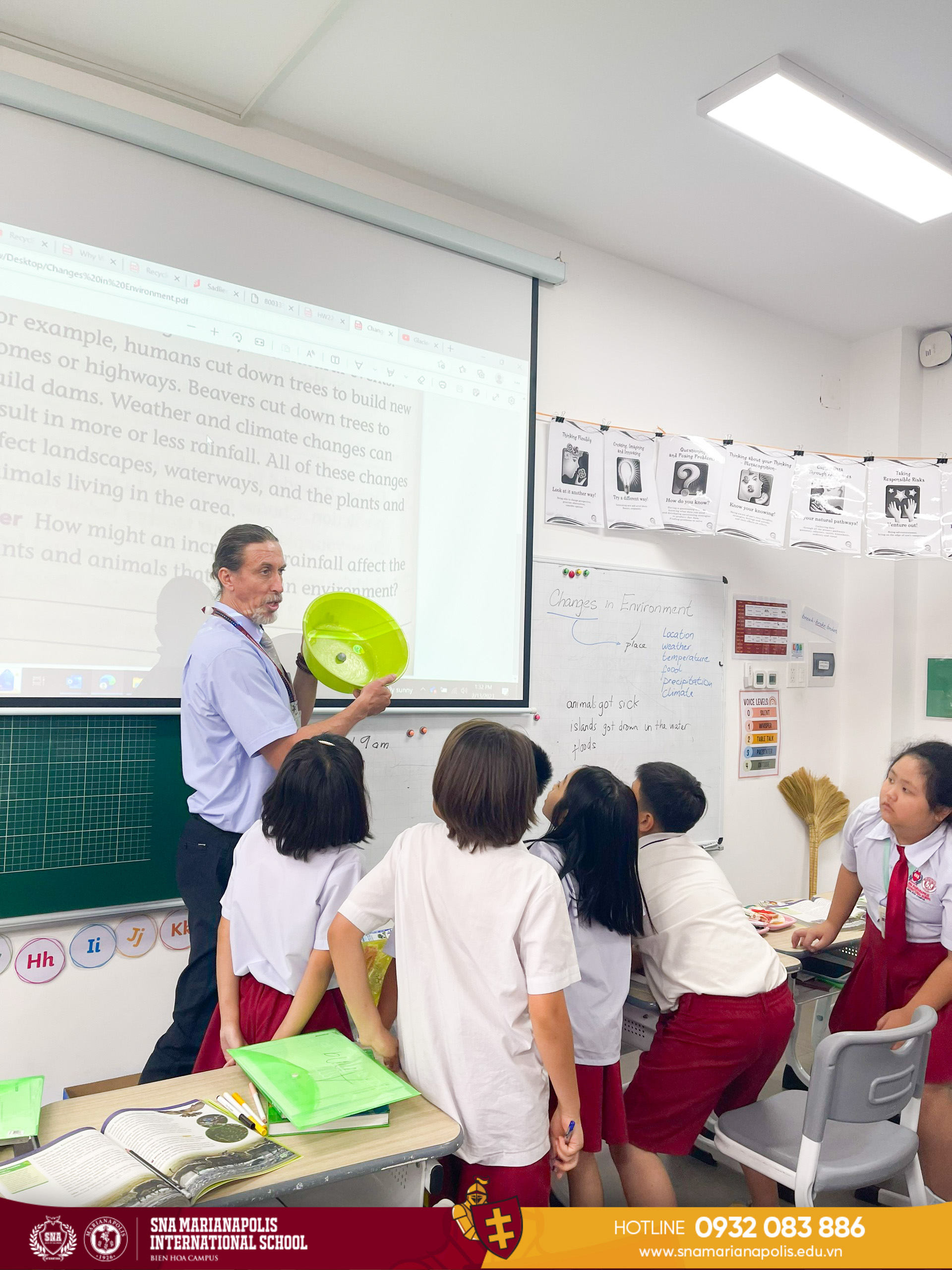
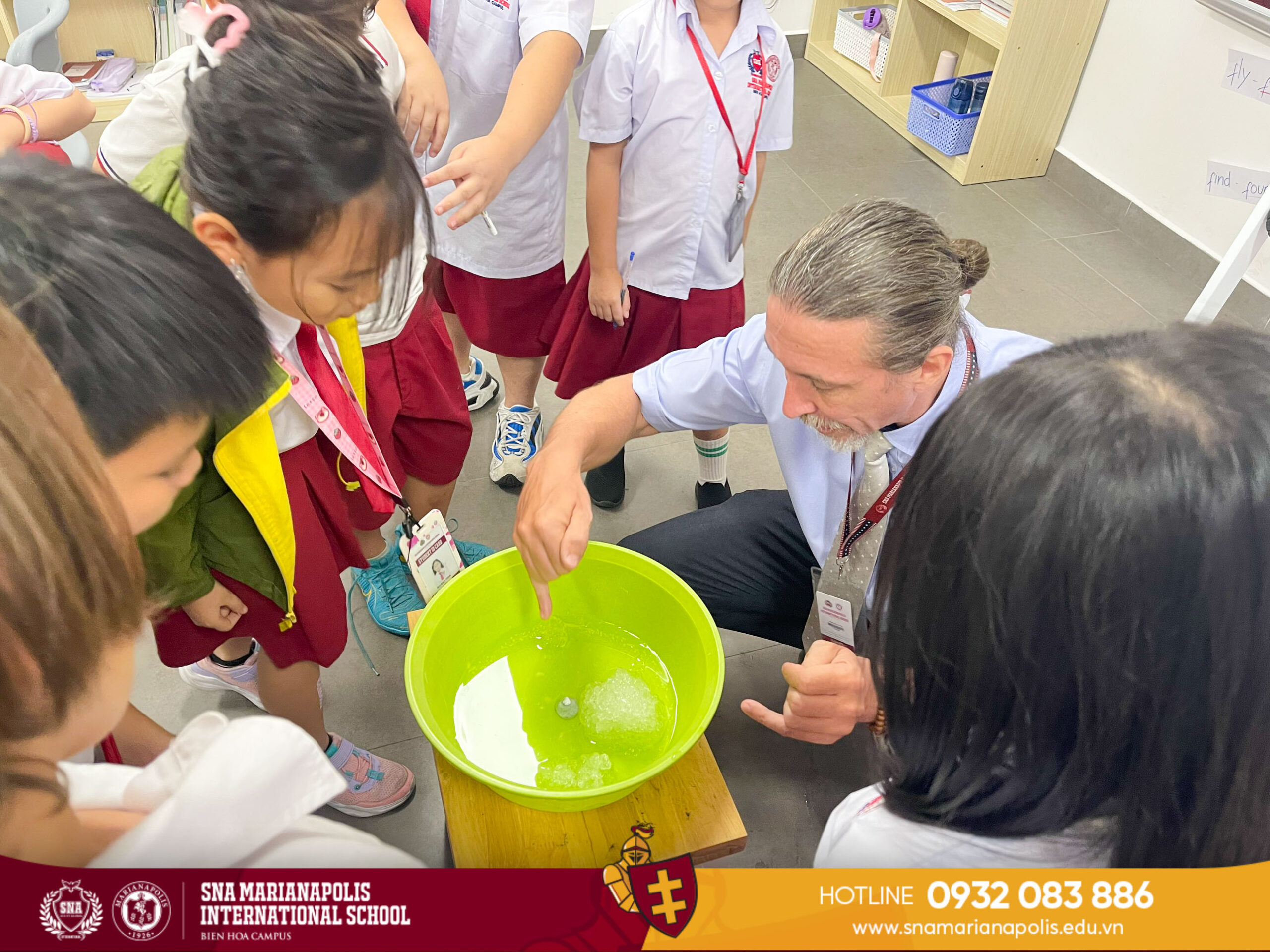
He pointed at the worksheets that were neatly placed on each of the student’s desks. “Tomorrow when they walk in, they already know they’ll have some music and a warm-up activity waiting for them. The activity is based on the prior knowledge they learned from the past unit or past week. The repetition in the class’s routines trains students to be ready for the learning that happens all the time. My job is to stick to it and gently nudge students into order and discipline.”
It is safe to say that rules and routines are the core of Mr. Emil’s classroom, yet it does not mean that the class is run in a stiff, dictatorial way. Acknowledging that sometimes the class flow may not simply go as planned because of stress and distraction, Mr. Emil still makes great effort in sticking along yet being reactive to the “not-so-great” incidents.
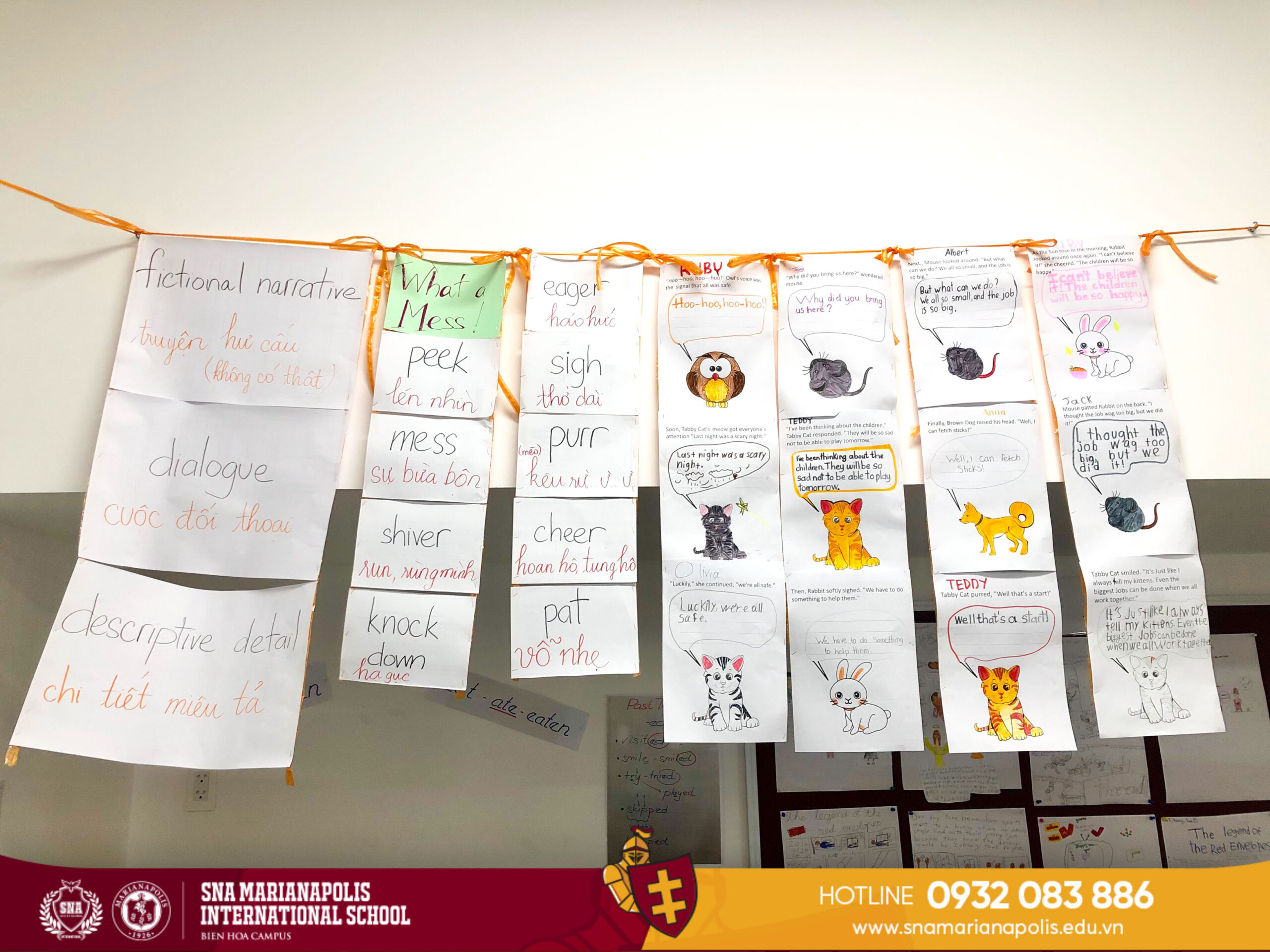
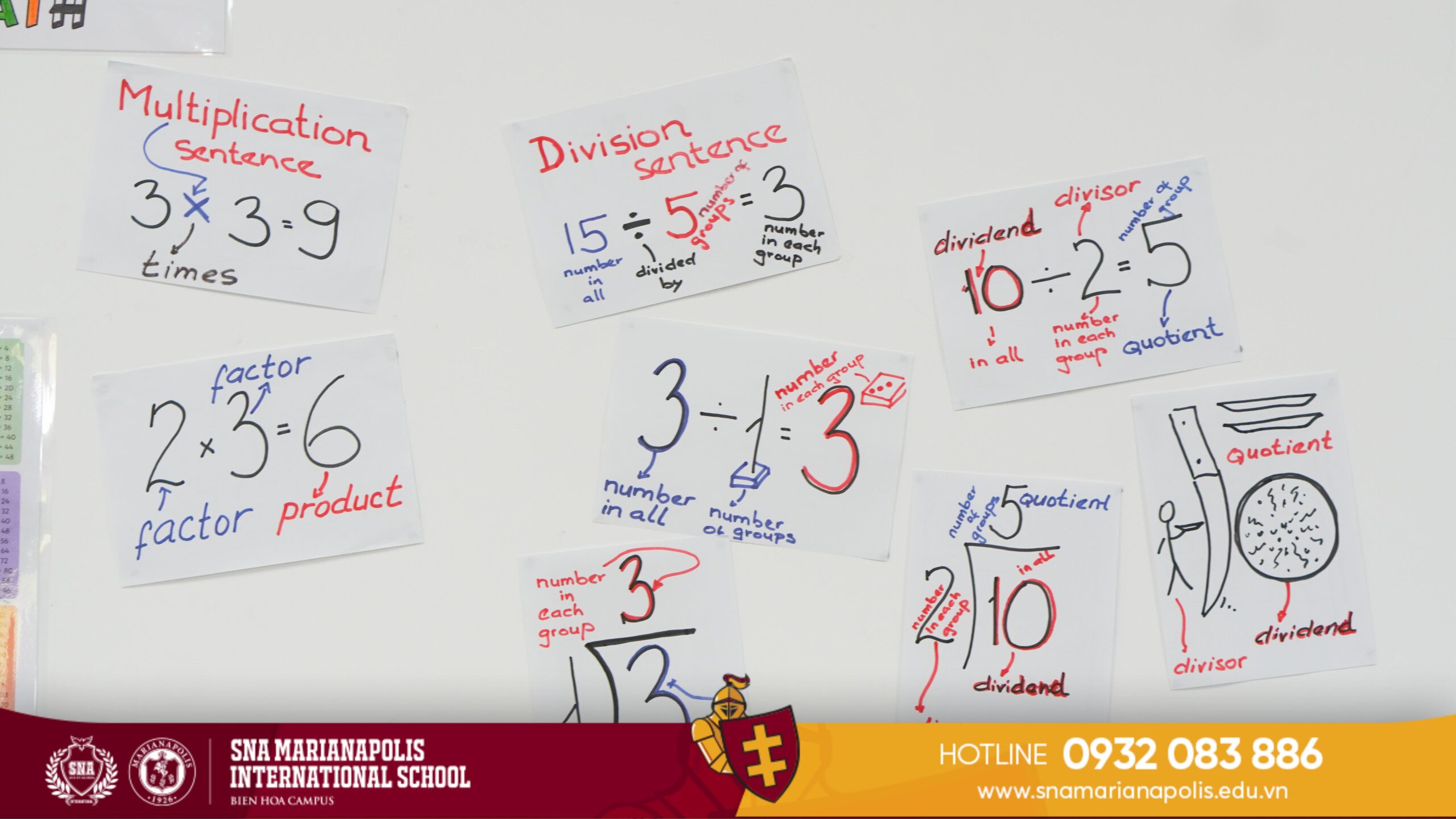
Habits of Mind
Such discipline is integrated into his class through the teaching of the 16 habits of mind, which, in turn, reinforce the healthy routines. To Mr. Emil, all these 16 habits are equally essential to students’ future success, yet there are 3 major ideas that are constantly practiced and emphasized in his classroom.
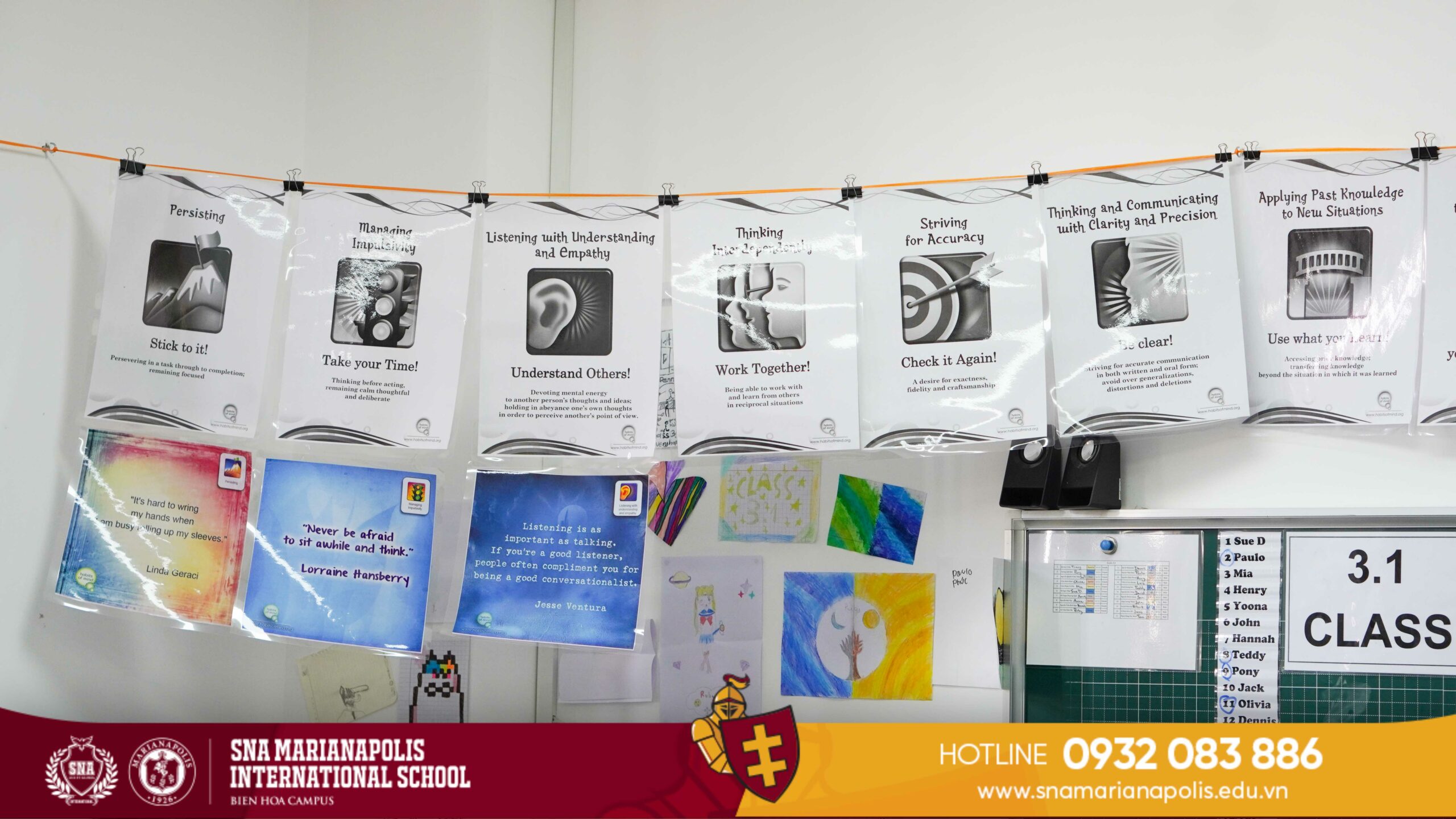
“Stick to It” – A habit that trains students to focus on a task and persevering through completion. This is a crucial skill that Mr. Emil is fully aware his students are not successful in yet but are continuously striving for every day. This habit is practiced in conjunction with the following one.
“Managing Impulsivity” – A habit that requires students to take their time and remain calm, thoughtful, and deliberate in completing their tasks instead of rushing to a conclusion. This is one of the trickiest and most complicated habits that even adults have trouble mastering, according to Mr. Emil. How he incorporates it into his teaching is to make it a routinely reminder. When a student makes a hasty mistake, he will calmly explain to them, “This is happening because you’re not managing your impulsivity.” As such, the idea of slowing down to think before acting is ingrained in every decision-making task.
“Listening and Understanding with Empathy” – A habit that fosters the understanding and consideration for other people’s thoughts and ideas through conversations and other interactions with them. Mr. Emil is concerned about students’ attentive listening, “In the Post-Covid time, students’ attention span has extremely shortened. TikTok doesn’t help. Now everything under 2 minutes has become too long for the students.” This big issue must be tackled by “managing impulsivity” before students can practice empathy with listening which will be a major advantage for not only their academic success but also their social interaction.
Among the remaining 13 habits, Mr. Emil makes sure to focus on these ideas:
- “Applying Past Knowledge to New Situations” – An important one as students constantly need to transfer their knowledge into various real-life problems.
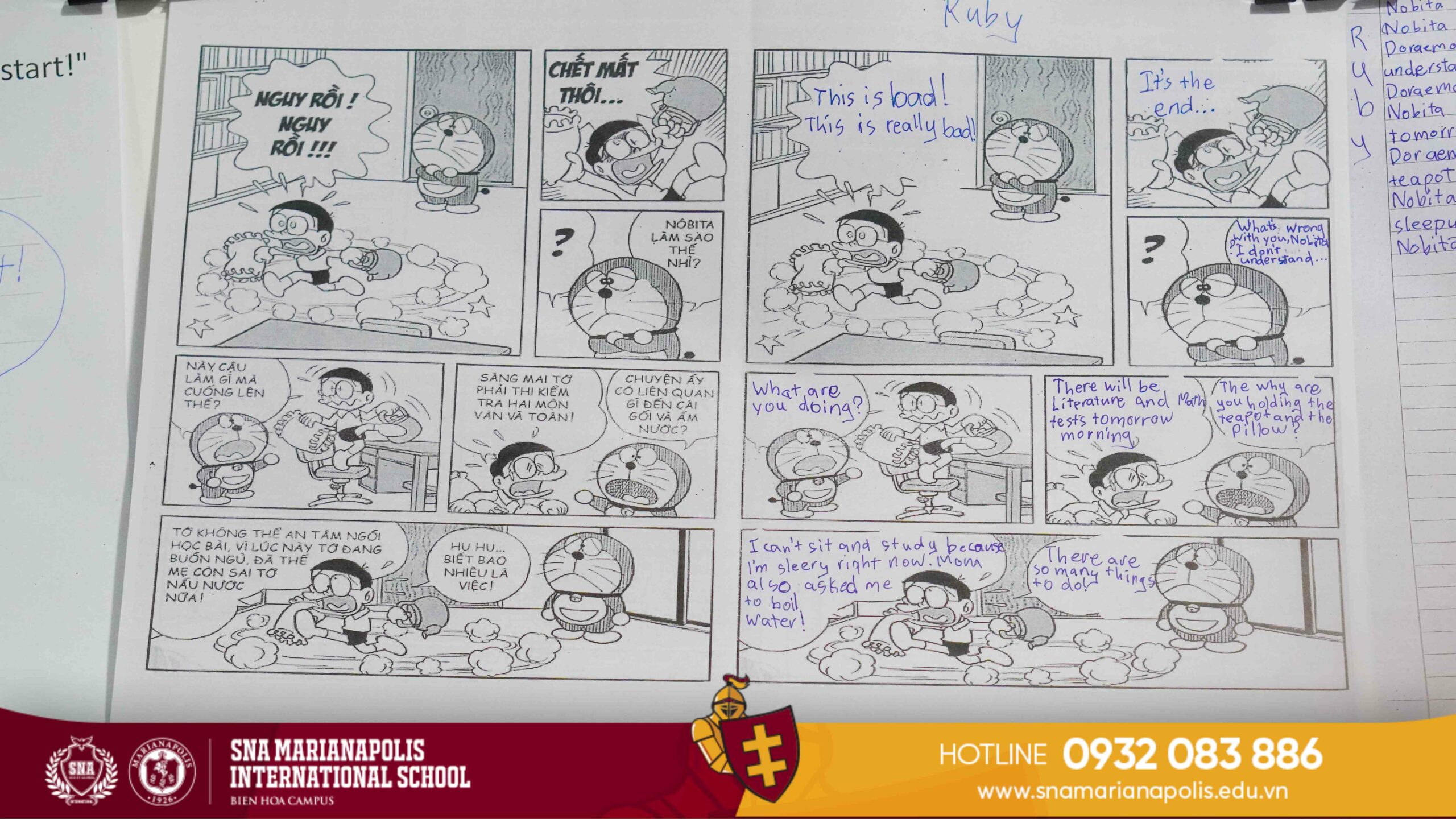
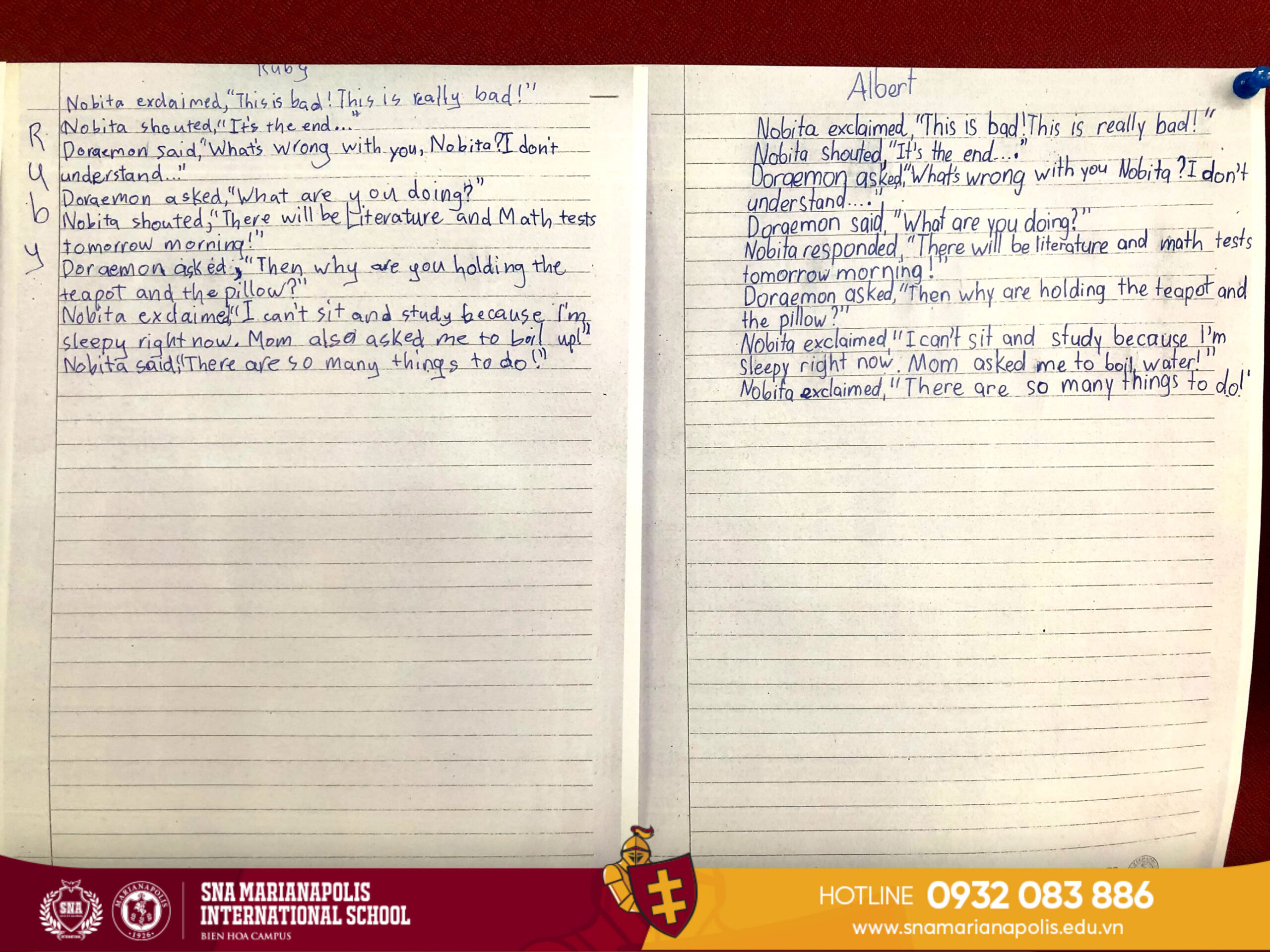
- “Striving for Accuracy” – Again, taking the time to think and reflect to achieve precision and effectiveness.
- “Thinking Interdependently” – A relevant skill when students work in groups. They need to learn how to take on, distribute, and handle responsibility.
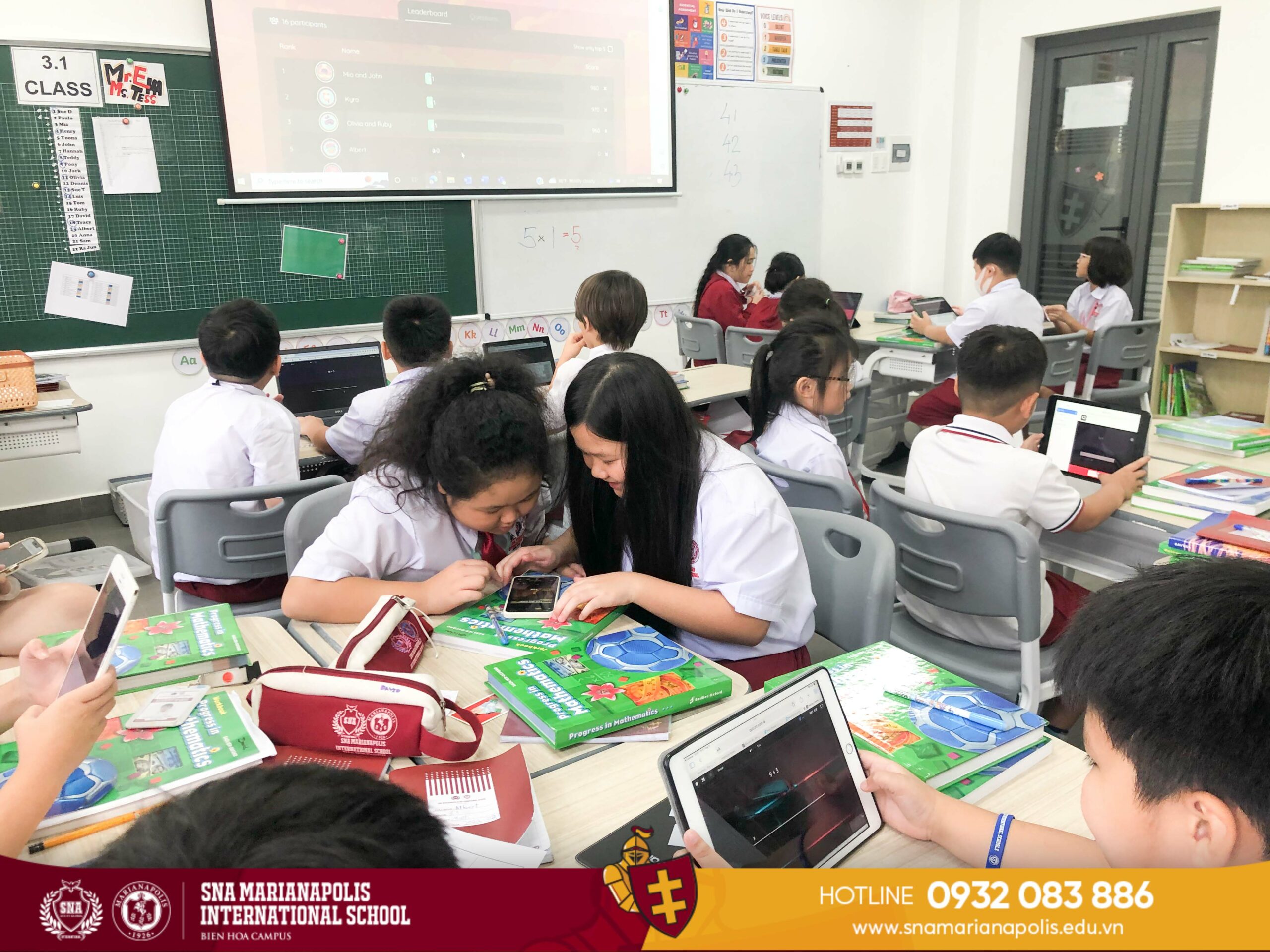
- “Thinking about Your Thinking” – The habit that trains students to reflect on their thinking and process and decision-making techniques to justify and evaluate their reasoning. This is a particularly advanced skill that is normally expected in high school students. For Mr. Emil, it does better than harm for the young grade 3 students if they are taking baby steps towards this high-level skill.
- “Finding Humor” – A good habit which Mr. Emil enjoys, and which helps distinguish him as a humorous positive teacher among his students and colleagues. Though he runs his class with discipline and strict routines, Mr. Emil still spares a lot of moments for “Responding with Wonderment and Awe” to fascinating events and actions. This positive attitude nurtures students’ mental and emotional bonds with knowledge and their social interactions with peers and teachers.
A Collaborative Teacher
Humor and positivity also underline the work relationship between Mr. Emil and his Teaching Assistant – Ms. Tess. They sail through a big cultural and age difference and learn to collaborate with mutual respect for each other’s work. Their differences actually make up for one another’s. Mr. Emil is all praises for Ms. Tess as a helpful teaching partner. “She makes sure the students fully grasp the knowledge and gives the class a boost with her ‘charming and upbeat energy’ when I am burnt out.” Another indispensable member of the Grade 3 team is Ms. Kyra, Grade 3 EAL support teacher. Her deep insight into the classwork and excellent professional attitude help focus on things that need to be improved and facilitated.


He sums up their work attitude as “proactive,” adding that “Despite our contrasts, we know why we are here – to help the students. That’s the only thing that keeps teachers going.”
On top of that, accepting failure is what makes these teaching pals grow stronger. “When we fail, we talk about it instead of beating up on ourselves”, he explains trying to be proactive and responsive by learning from failure. In fact, Mr. Emil’s readiness to learn expands beyond that in both his professional and personal life.
A Life-long Learner
When asked what his favorite thing about his current teacher’s life is, he answers with joy, “I am learning something new, specifically new teaching approaches to fit the learning environment here.” Habits of Mind is a useful toolkit to aid him in that transformative process. Meanwhile, he constantly adapts his habits teaching in a natural and meaningful way instead of forcefully and mechanically inserting it into the curriculum. “Seeing any student successfully acquiring any of the Habits of Mind makes me feel accomplished because that will solidify as a core habit for the rest of their life. They can later spread it around and help others through their work.”
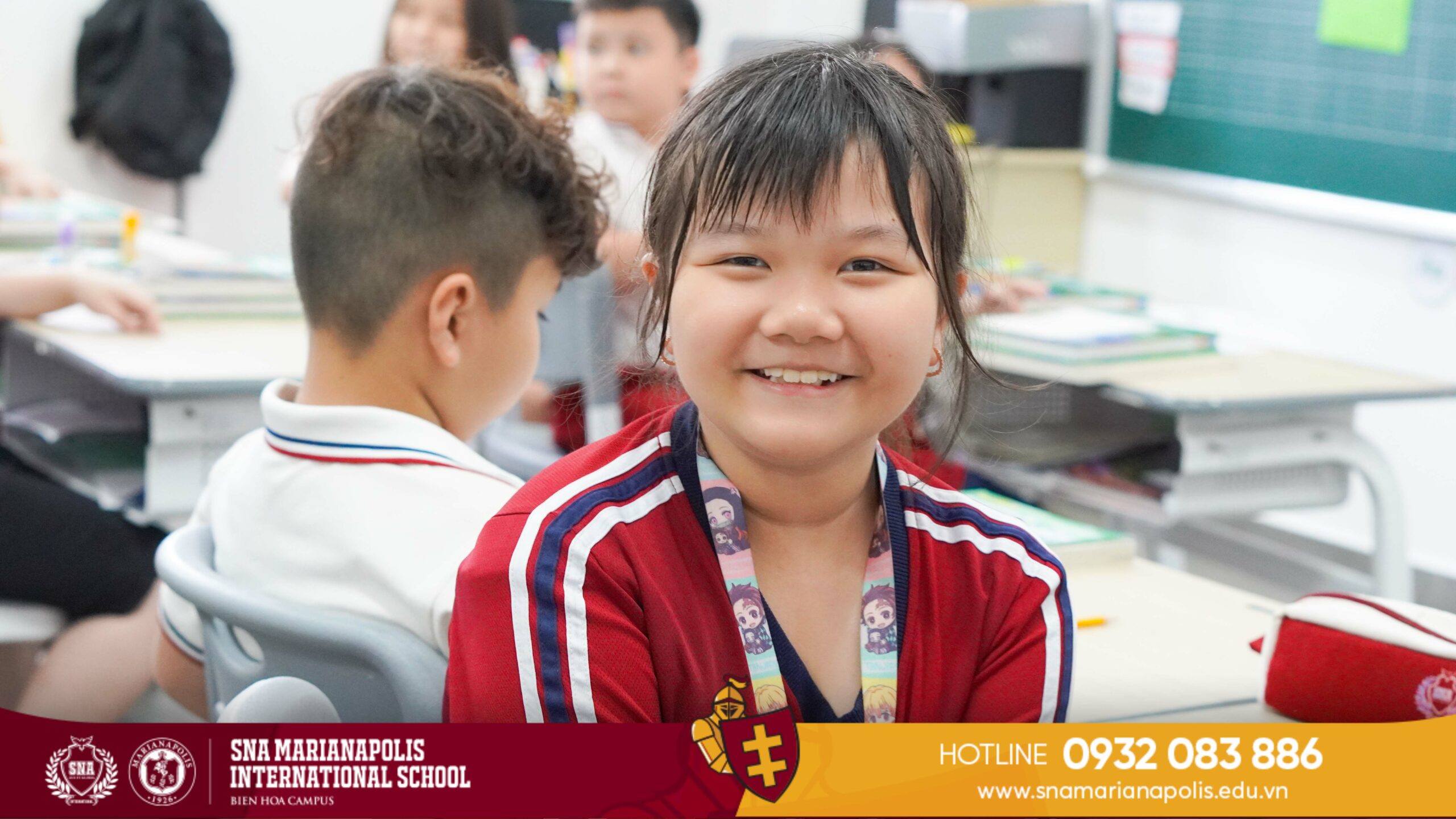


Mr. Emil proudly shares a Habit of Mind he swears by – “Remaining Open to Continuous Learning. I am a life-long learner. I would easily burn out working on the same thing over and over again,” he justifies.
As such, we finally find out the secret to Mr. Emil’s teaching. Always learning and adapting new teaching ideas sparks his joy and inspires him to be an enthusiastic and devoted international teacher throughout the years.
For more information about the curriculum, please kindly contact our Admissions via Hotline at 0932 083 886 or fill out the form in the following link: https://snamarianapolis.edu.vn/register-for-consultations/



